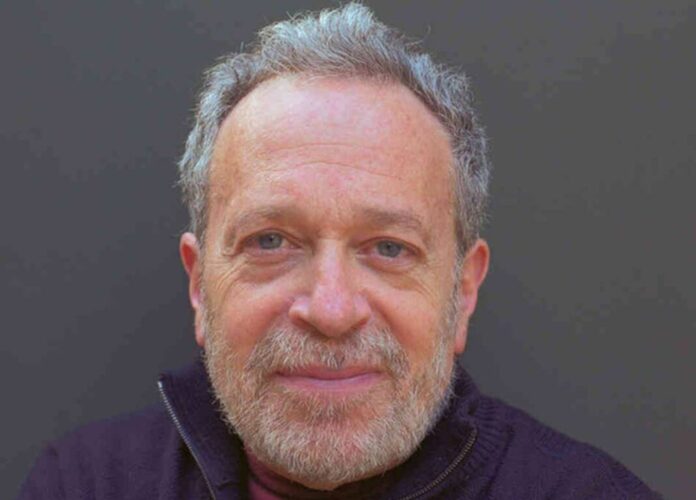After ProPublica reported that for more than two decades, Clarence Thomas has been taking lavish vacations, super-yacht trips, and rides on a private jet, all courtesy of GOP megadonor Harlan Crow, Thomas issued a statement explaining that the reason he hadn’t disclosed any of this was that Crow and his wife are among Clarence and Ginni Thomas’ “dearest friends” and that “as friends do, we have joined them on a number of family trips during the more than quarter century we have known them.”
Thomas further explained that he thought he didn’t need to report these gifts on annual disclosure forms because when he first joined the court he was told that “personal hospitality from close personal friends” need not be reported.
This is dangerous rubbish. Thomas has been a member of the Supreme Court since October 1991, which means he met his “close personal friend” Harlan Crow after Thomas was already a justice. And Thomas has been accepting Crow’s sumptuous hospitality almost from that start. Which is exactly the problem.
And it’s why disclosure of such lavish gifts isn’t enough to guard the integrity of the court. In this age of billionaires, the law should be: No such gifts!
Then ProPublica revealed that in 2014, one of Crow’s companies purchased properties in Savannah, Georgia, from Thomas, his mother, and the family of Thomas’ late brother — including one then occupied by Thomas’ mother. Soon after the sale was completed, contractors began work on tens of thousands of dollars of improvements on that home.
A federal disclosure law passed after Watergate requires justices and other officials to disclose the details of most real estate sales over $1,000. Thomas never disclosed his sale of the Savannah properties. That appears to be a violation of the law.
I knew Clarence Thomas when he was 23 years old. We never became close personal friends. (Although I made every effort to be friendly toward him at Yale Law School, he always responded to my overtures with an angry scowl. It is of course possible that I was obnoxiously friendly, but I don’t recall him speaking to any of our classmates. It’s also possible that Thomas became warmer and friendlier over the years.)
But once someone becomes a justice of the Supreme Court (or a member of Congress, or a president or governor), friendship often takes on a different meaning. The friendships of powerful people typically involve transactions replete with ulterior motive. This is especially true if the person on the other side of the friendship happens to be a multi-billionaire who pours tens of millions of dollars into political campaigns.
No billionaire’s gift to the powerful comes without strings; Crow’s to Clarence and Ginni has allowed Crow to crow that he hangs out with them — bragging rights that give Crow even more influence among those who’d like to have influence in high places. Not incidentally, Crow has links to groups that file amicus briefs before the Supreme Court.
I have seen it again and again in Washington. Money and influence are traded over fancy dinners, gatherings at luxury resorts, Georgetown soirees, and sleepovers in the Lincoln Bedroom. From these transactions bloom so-called “friendships” in which the line between personal chumminess and powerful quid pro quo dissolves into mutual advantage — and corruption.
It should be noted that since he has served on the Supreme Court, Thomas has been one of the chief enablers of such corruption. In 2010, he supported the court’s notorious Citizens United ruling, which removed limits on corporate spending on politics. But Thomas went even further, issuing a concurring opinion insisting that the court overturn all rules that require transparency in political spending: “This court should invalidate mandatory disclosure and reporting requirements,” he wrote. At the same time, Ginni Thomas was running a conservative nonprofit to fight the “tyranny” of President Obama — a nonprofit that directly benefited from the Citizens United ruling.
For a justice of the Supreme Court who would like to enjoy a lifestyle far above what his relatively meager salary can sustain, and for a justice’s wife intent on wielding even more political clout than her own marital circumstance provides — both in an era when unprecedented wealth has accumulated at the top — the choice of whom to befriend is not a random act. It drips with corruption.
Large gifts to Supreme Court justices give the appearance if not the reality of corruption. No disclosure can remove the taint. And friendship has nothing to do with it (not even if the friend has a thing for collecting Nazi memorabilia).
Robert Reich, former U.S. Secretary of Labor, is professor of public policy at the University of California at Berkeley and the author of “The System: Who Rigged It, How We Fix It.” His column does not necessarily reflect the opinion of The Lima News editorial board or AIM Media, owner of The Lima News.







